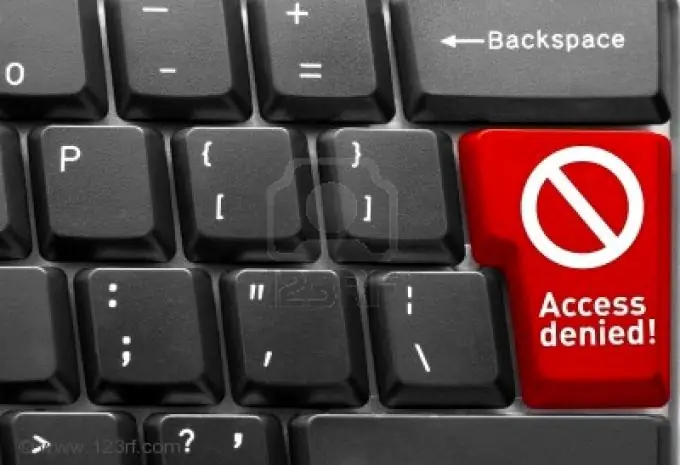Even if you know that no one wants to harm your computer, it is better to use the denial of access to it. If, besides you, novice users or children use a PC, then it is possible that they may accidentally delete the desired file or driver, and problems will begin, and it may also be necessary to reinstall the operating system. Therefore, it will not be superfluous to deny access to a computer or restrict access to its individual devices and data stored on it.

Instructions
Step 1
To completely exclude access to the computer: go to the BIOS (press Delete a couple of seconds after the numbers appear on the screen and the memory check starts), and in the Bios Features Setup menu that appears, select the User Password option, then enter the password.
Step 2
There is also a Supervisor Password setting in this menu. If you want others to be able to use your computer without having access to the BIOS setup, choose this password. Be sure to write down the password you entered, because if you forget it, you will not be able to turn on the computer at all.
Step 3
In order to restrict user rights when working on your computer, use programs that are designed to restrict access to your computer, you can also use utilities that protect your computer from intruders. These programs include: Homesoft KEY 1.0 b.7, WinLock 1.75, NVD Monitor 3.0, Forpost 2.2D, Desktop-Lok 6.0.0, Limited Access 2.0, DeviceLock ME 1.0 Beta 2, AdjustCD 5.0 beta.






